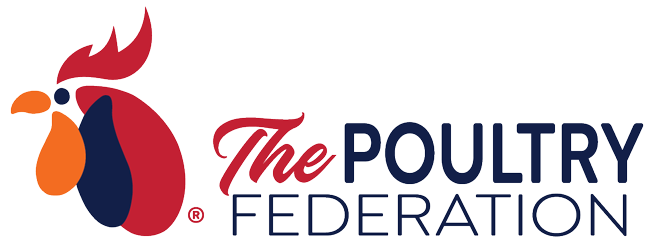Attracting and retaining a productive and stable workforce has always been a challenge for the poultry and meat processing industry. Rural locations can make I hard to attract office workers and difficult, strenuous work makes it hard to retain workers on the processing floor.
Today, with borders tightening in an industry built on immigrant labor, and baby boomers retiring in drives (particularly office workers), those challenges just got greater.
“Leadership is going to require…a further and further explanation and understanding of generational workplace preferences,” Cam Marston, author of “Motivating the ‘What’s In It For Me?’ Workforce,” told participants at the Annual Meat Conference earlier this year.
Millennials now (18 to 37 years old) already make up about 35 percent of the U.S. workforce, while Gen X workers now (38 to 53) make up 33 percent and baby boomers now (54 to 72) make up 25 percent, according to Pew Research Center. With an estimated 10,000 baby boomers reaching retirement age every day and Gen X population being more than 10 percent smaller than the boomer generation, millennials will be filling and being promoted into vacant jobs.
Marston warns generational mismatches in management styles and workplace expectations are already causing recruiting and retention problems as, for example, “leave me alone” Gen X managers are sometimes put in charge of “give me feedback” millennials. Add to that, millennials are also being accelerated into management positions, bringing with them their own leadership style.
As the labor market continues to tighten – and it will – it is the meat processing company that understands and adapts to these changing dynamics that will not only win the new hires they desperately need but retain the workers necessary to stay in business. Industry leaders including Hormel, Cargill and Smithfield are well aware and making the necessary changes.
“As our workforce continues to change, we are changing with them,” says Hormel Foods Senior Vice President of Human Resources Janet Hogan, noting that 40 percent of the company’s workforce are now millennials. “We have implemented new policies like pet insurance, flexible work arrangements and started a summer hours program at our corporate office.”
Feedback
While no generation is homogeneous and not every attribute will apply to everyone born in that timeframe, Marston says each generation was raised differently and those differences left an imprint. For example, parents after the Sept. 11, 2001 terror attacks had a natural tendency to be protective. The generation they raised also grew up with communication tools affording flexibility that makes them question the 9-to-5, in-the-office mentality of older managers.
“We get into the workplace with that imprint, with some expectations, which create our workplace preferences on how we communicate, on how we lead. And it’s when those preferences clash, the turnover numbers rise and the engagement numbers fall,” Marston says.
Unlike generations before that were satisfied with an annual review, millennials want constant feedback on progression toward key milestones. In fact, 91 percent of millennials want formal feedback at least twice a year with 60 percent preferring it every one to three months, according to a white paper by recruitment consultancy Robert Walters.
“Millennials want to know what is going on all the time every day. They are more accustomed to instant gratification and transparency,” Cherie Shepard, director of packaging, materials handling and processing for Direct Recruiters, told participants on a webinar sponsored by the Food Processing Suppliers Association. “My kids got ribbons and trophies for everything they did. That is just part of how this generation has evolved.”
They also want a clear path toward rapid advancement based on contribution and not years of service. Millennials have grown up being told they are capable of achieving anything and this confidence means they crave responsibility early in the careers. This is often a mismatch with the “pay-your-dues” mentality of baby boomer senior leaders.
“Employers risk disconnection with their millennial workers if they fail to acknowledge the importance millennials place on career progression,” warns Andrew Stechell, a director at Robert Walters.
Robert Walters Associate Director Sally Martin says employers must also manage millennial expectations. “IT is important to be clear on timelines and criterion, including behavioral competencies for promotion, as they can be unrealistic in their ambitions as to the speed with which they can climb the corporate ladder.”
Flexibility
Flexibility – in hours and in work location – is also a preference younger worker bring with them to the workplace. White not as possible on the processing floor, companies like Cargill are offering more flexibility to their office workers.
“Technology has enabled some positions to work remotely that otherwise worked in a central office in the past,” says Julie Zimmy, vice president of human resources for North American Protein at Cargill. “That number continues to increase as we fully embrace a culture of workforce mobility.”
And while plant shifts must operate on regular hours, Zimmy says Cargill is exploring more non-traditional workweeks for its hourly workers, by staggering workdays, for example.
Hormel is also looking for ways to flex. “Our plant locations maintain normal production hours, but we are always reviewing new and creative ways to improve the work-life balance opportunities for all our team members,” Hogan says.
At Smithfield, nearly 60 percent of the salesforce are millennials and more than 20 percent of them work from home, according to Chief Human Resources Officer Lisa Swaney.
Mission Makes A Difference
Mission and corporate culture are also important to this generation, which could be a plus for employers in the meat processing industry with its mission on feeding the world and long, impressive history of charitable giving. When it comes to recruiting, it is important to emphasize those aspects of the corporate culture on the social media outlets where this crowd goes to research your company.
Smithfield Foods makes it a point to include information about the company’s sustainability efforts and how it supports the communities in which its employees live and work, Swaney explains.
“With this in mine, we include this information in our onboarding process and demonstrate how employees can get involved.”
Shepard warns meat processors that prospective millennial hires are scouring the company website, Facebook, LinkedIn and other social media to get a feel for the corporate culture and are more likely to accept an offer from a company with a social media presence and positive social media reviews. At the very least, she says, make sure your core values are represented well on your website.
Unlike the baby boomer “work, work, work and then work some more” mentality, millennials also want – and expect – to have fun. Socializeing with colleagues is important to them.
In fact, 75 percent of millennials surveyed by Robert Walters considered an engaging and fun workplace, including perks like free food and social events, “important” or “very important.” This compares to 58 percent of Gen X and 45 percent of baby boomers surveyed.
Who’s The Boss
As baby boomers retire, both Gen Xers and millennials – groups that, can differ vastly in leadership style – are filling more management positions.
Members of Gen X (born 1965 to 1980), who now occupy many middle-management positions, grew up during the emergence of the two-income household and rising divorce rates, which spawned the expression “latch-key-kids.” Generally independent, resourceful and self-sufficient, they often also carry a mild disdain for authority and structured hours.
As Marston told meat industry executives earlier this year, often a Gen X manager believes he or she is being a good boss by leaving direct report alone to do their jobs, seeing that as a sign of respect and confidence in their employees’ abilities. In fact, it is the way many members of this generation would like their own mangers to treat them, often preferring to distance their work from their personal lives.
Unfortunately, this management style risks alienating the socially focused, feedback-hungry millennial employee who sees their boss’s reserve as a lack of interest in their career and in them personally.
Loyalty to the boss is the No. 1 reason millennials stay in a job – especially in the first three years – and dissatisfaction with the boss is the No. 1 reason they quit, Shepard says “they want a tight bond with a boss who is close, caring and aware.”
This is not to suggest micro-managing a millennial. Shepard offers this advice: “Describe the result you are looking for and let them figure out how to get there. In many cases, they will develop a better process. They grew up learning how to figure things out on their own with the Internet and a network of friends a text message way. They will figure it out.”
And when they do come up with a new, better, more efficient way to solve the problem, make sure you acknowledge them privately and in front of their peers.
Marston tells meat company leaders to give frequent feedback and reward accomplishments regularly with recognition to retain the younger works you need.
When the millennial becomes the boss, another set of challenges arises. According to management consulting firm Korn Ferry, which interviewed 1,000 human resources professionals, these young leaders are typically great at creating flexibility in the workplace but often fall down on face-to-face communication.
The survey showed 55 percent of millennial bosses favored communicating through online messaging, with 28 percent preferring email. Only 14 percent favored communicating in person and just 3 percent like to use the phone.
“The way bosses communicate with their staff has a huge impact on organizational structure,” writes Taimur Shah, client director with Korn Ferry. “Millennials grew up using screens as their primary form of interaction, and while online messaging and email are efficient tools, face-to-face communication is needed to create an inclusive culture.”
Still, as a generation, this group wants to and expects to improve their leadership skills. According to a 2016 survey by consulting firm Deloitte, 71 percent of millennials likely to leave their companies in the next two years are unhappy with how their leadership skills are being developed.
The Robert Walters survey showed 43 percent of millennials felt shadowing experienced members of staff to see how the business works was important and supported their desire to progress in their career.
Smithfield is doing a lot to broaden younger workers’ experiences within the company through its Career Foundation and Smithfield NEXT programs.
Adjusting to new generations of workers is a constant consideration for all employers. Soon it will be the millennials’ turn to adjust: The oldest members of Generation Z just turned 18.
Source: Meatingplace October 2018




































